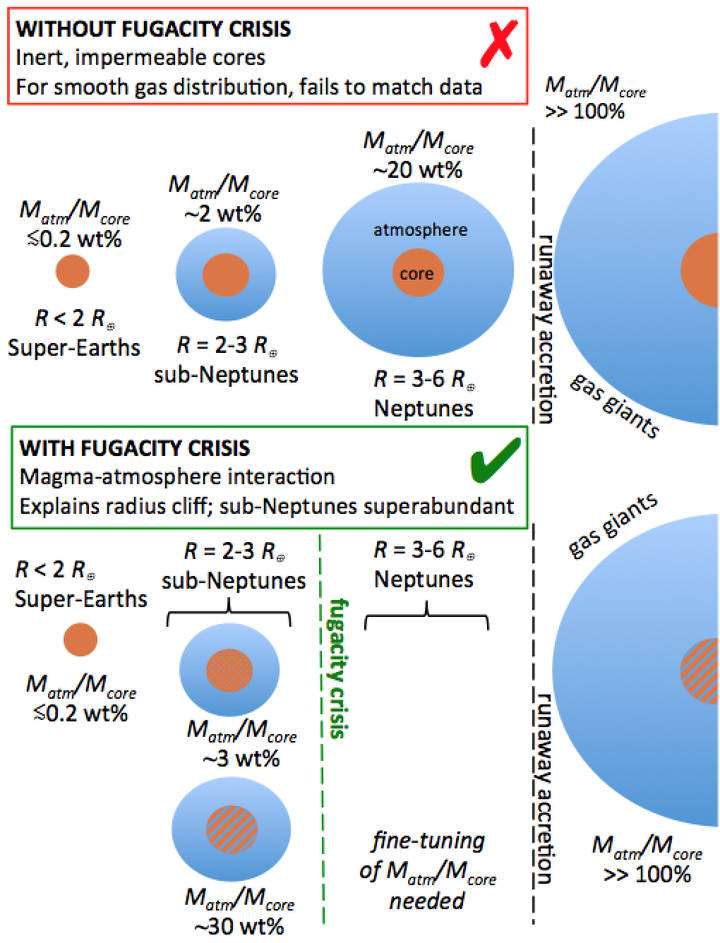
Abstract
Transiting planets with radii 2-3 R_⊕ are much more numerous than larger planets. We propose that this drop-off is so abrupt because at R ~ 3 R_⊕ , base-of-atmosphere pressure is high enough for the atmosphere to readily dissolve into magma, and this sequestration acts as a strong brake on further growth. The viability of this idea is demonstrated using a simple model. Our results support extensive magma-atmosphere equilibration on sub-Neptunes, with numerous implications for sub-Neptune formation and atmospheric chemistry.
Type
Publication
ApJL 887, 33